Home Office under fire after student visa fraud case
- Published
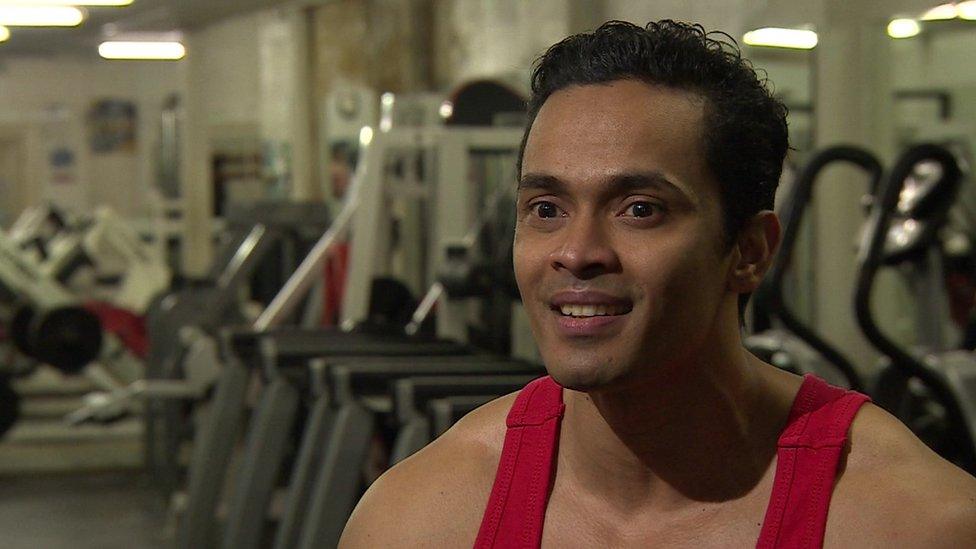
Sharif Majumder's victory may have implications for other students accused of cheating
The Home Office faces potential legal action from thousands of non-EU students who were deported or told to leave Britain for allegedly using deception in visa applications.
MPs on the Home Affairs Select Committee are investigating the government's handling of a crackdown on student visa fraud.
And after ministers lost a major test case, the committee chair Yvette Cooper has called on the Home Secretary Amber Rudd to explain "as a matter of urgency" how a backlog of cases will be handled.
Bangladeshi student Sharif Majumder, who was one of tens of thousands accused of having faked a mandatory English language test, won his challenge after the Home Office could not produce crucial evidence.
Mr Majumder was caught up in a crackdown triggered by a Panorama investigation that showed mass cheating at two test centres approved to stage an exam called the Test of English for International Communication or TOEIC.
Undercover footage showed entire classrooms of registered candidates standing aside so their written and oral tests could be done by paid cheats who spoke better English.
The answers were recorded on computer and sent to be marked in the US by a company called ETS, which failed to detect the same voices appearing numerous times under different names.
In a multiple-choice paper, an invigilator was secretly filmed reading out the answers to those sitting the test.
Until the BBC exposed these abuses in 2014, foreign students could use a TOEIC pass to show they had the required standard of English to qualify for a visa.
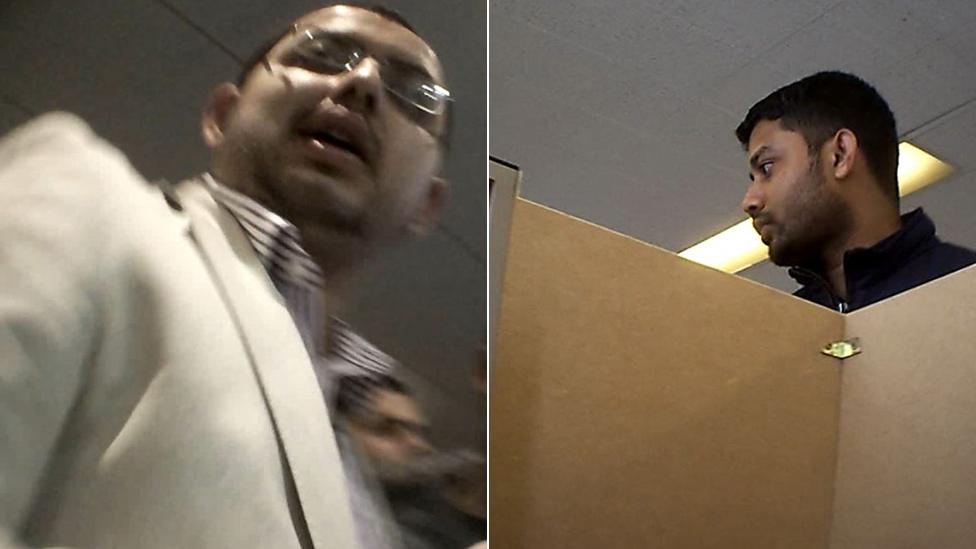
Talal Choudhury and Shaheen Ahmed are among those convicted for staging the faked exams filmed by Panorama
When the then Home Secretary Theresa May was shown the BBC's footage, she said: "'What Panorama has uncovered is extremely important. It's very shocking and I want to do something about it."
The TOEIC was dropped from the list of exams recognised for visa applications and a criminal investigation was launched.
On Tuesday this week four people who featured in the Panorama programme were convicted of immigration offences and sentenced to between three and eight years in prison.
A fifth person, Chowdhury Baker Habib, pleaded guilty, admitting he had sat the test for others "30 to 40 times".
We can now also report that four other people who were also exposed by Panorama were convicted in May.
Jurors heard evidence that inspectors found spreadsheets with the names of more than 1,000 candidates whose TOEIC exams were faked at the two test centres where the BBC filmed.
In the months after Panorama was broadcast, the government spread the net much more widely to catch others who had obtained visas by deception.
The Home Office and ETS agreed that voice recognition techniques would be used to analyse the database of oral exams submitted electronically from 96 UK test centres.
If ETS computers detected the same voice appearing twice or more, it could indicate cheating.
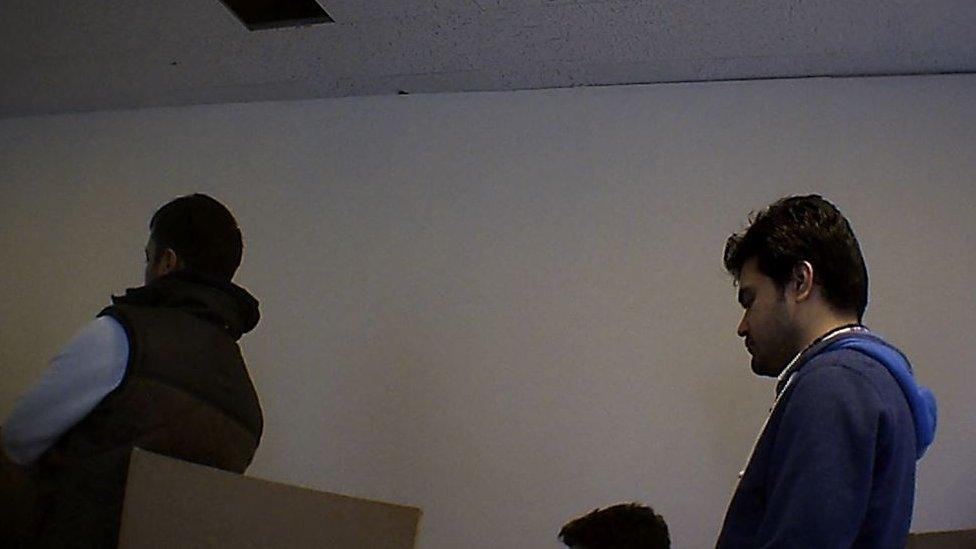
Undercover Panorama footage from Eden College International showed candidates standing while paid cheats took their exams
The electronic result had to be verified by two separate human ETS analysts.
A test result could only be declared "invalid" if the computer and human assessments matched.
ETS subsequently gave the Home Office a list of more than 33,000 TOEIC tests it said were invalid, and declared a further 22,000 were "questionable".
In response, the Home Office curtailed or refused the visas of thousands of students. More than 4,600 people were deported or left Britain.
'I was shattered'
Sharif Majumder was among those who were accused of cheating and told to leave.
After arriving in Britain in 2005, he had gained a series of qualifications including several passes with distinction in English courses.
In 2012 he sat a TOEIC exam - at a test centre which did not feature in the BBC investigation - in order to extend his visa to study an MBA at the University of West London.
When, in July 2014, he returned to the UK after a trip home, he was stopped at immigration and told he was suspected of cheating.
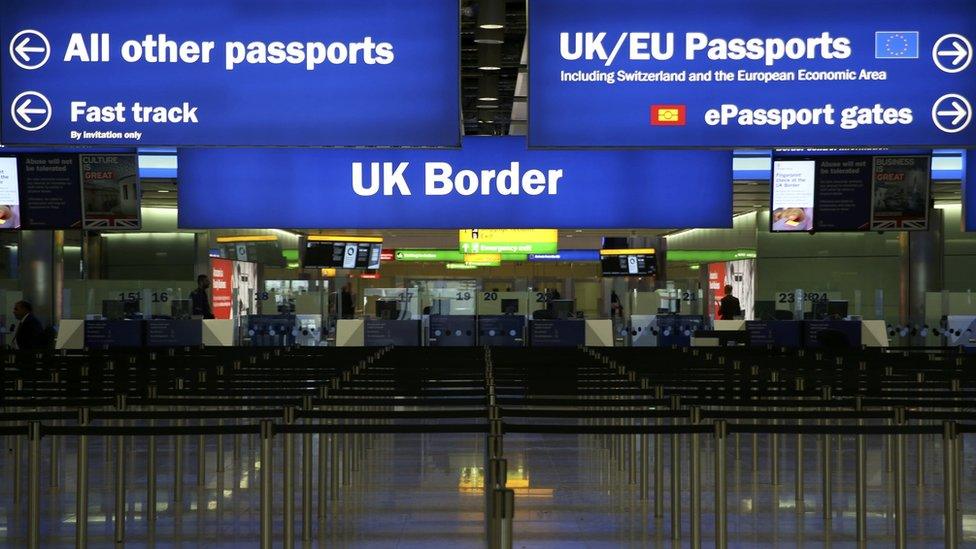
"I was shattered. I was almost crying," he told the BBC. "At one point I thought they would actually return me back home with the next flight."
He said he eventually persuaded airport immigration officials that he was a genuine student.
Mr Majumder, who vehemently denies cheating, then appealed against the Home Office's decision.
He tried to obtain the voice-matching files that were said to prove he had cheated, but the Home Office and ETS did not hand them over.
Things came to a head in earlier this year when the cases of Mr Majumder and another student, Ihsan Qadir, came to an immigration appeal tribunal.
A forensic voice recognition expert, Dr Philip Harrison, gave evidence that the ETS database of alleged voice matchings could contain mistakes called "false positives" - an incorrect finding that a student had cheated.
If true, this could seriously undermine the Home Office's evidence against Mr Majumder and others accused of cheating.
The President of the Immigration and Asylum Chamber of the Upper Tribunal, Mr Justice McCloskey, noted that Dr Harrison's evidence contained "a litany of criticisms of the ETS voice recognition testing systems, both automated and human" that he accepted in full.
'Fundamentally misconceived'
It also emerged that ETS had refused to provide Mr Majumder's test recording to either the Home Office or the tribunal.
"Almost remarkably, ETS provided no evidence, directly or indirectly to this tribunal," Judge McCloskey noted. "Its refusal to provide the voice recordings of these two appellants in particular is mildly astonishing."
He concluded that the court found Mr Majumder and the other appellant to be "truthful and reliable witnesses" and "the clear winners" in their appeals.
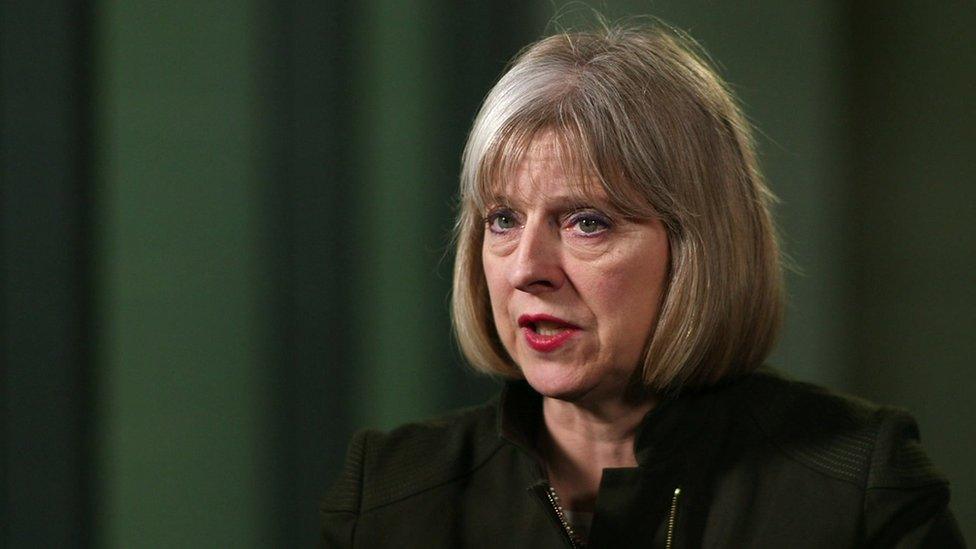
Following the BBC Panorama revelations, the then Home Secretary Theresa May ordered a crackdown on fraud
This was a very significant judgement with implications for thousands of other cases, though Judge McCloskey pointed out that each appeal would be sensitive to the facts.
The Home Office was given leave to appeal. But in a landmark judgement last month, the Court of Appeal said that the Home Office's case was "fundamentally misconceived".
Legal headache
In April, following the immigration tribunal, the Home Affairs Select Committee, external began an inquiry into the government's handling of the English testing allegations.
In June the then Immigration Minister James Brokenshire wrote to the committee: "The investigation into the abuse of ETS English language testing in 2014 revealed systemic cheating which was indicative of an extremely serious, large-scale, organised fraud and was a significant attempt to undermine immigration control."
And the chief operating officer of UK Visas and Immigration, Mike Wells, told the committee: "If an individual wishes to obtain their voice recording then they should approach ETS." He said that ETS had released some voice recordings, but that they had not been required in most cases.
"The courts have consistently found that our standard evidence is sufficient to satisfy the presumption of fraud and therefore that it is not necessary to routinely obtain individual voice recordings to establish this," he wrote in August.
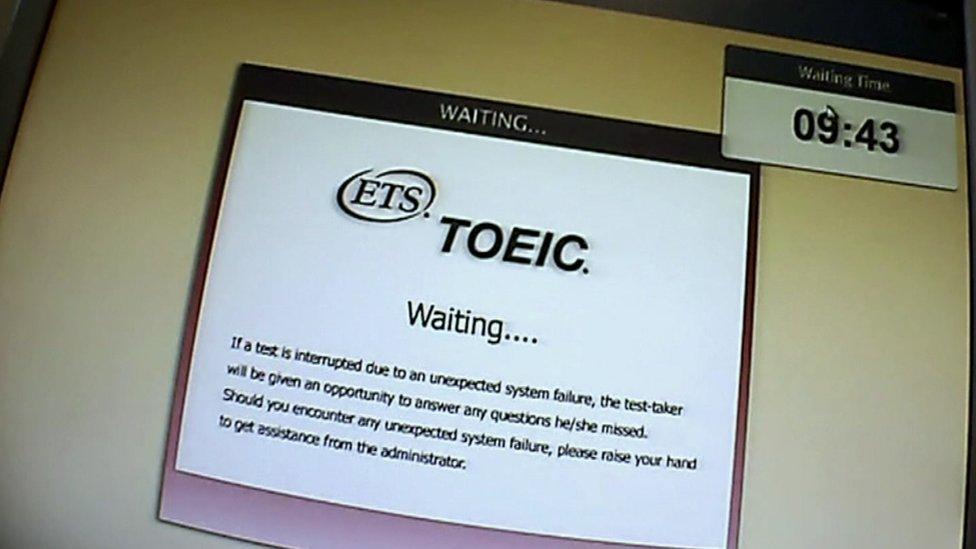
ETS now says tens of thousands of students cheated during their TOEIC exam
He also said that an independent forensic audio expert had "confirmed that the ETS analysis process was robust and suitably cautious being much more likely to produce false negatives than false positives".
Whatever the true level of fraud in the system, the Home Office now faces a legal headache.
It is already facing some 300 judicial reviews of decisions to cancel students' visas.
Its counsel told the Court of Appeal that the Home Office was minded to concede in some of these cases. But there remains the problem of how to conduct any new appeals from students who have already been deported.
Last week the chair of the Home Affairs Committee, Yvette Cooper, wrote to the Home Secretary Amber Rudd asking her to reveal "as a matter of urgency" what action she intended to take.
"The committee has previously raised concerns regarding the response of the Home Office to the revelation of widespread fraud in the English language testing system. We note that the Home Office recently conceded a key test case and has indicated that it may concede more. People's lives are on hold while awaiting judgement in their cases," Ms Cooper said.
Meanwhile, Mr Majumder - who has spent £30,000 on his legal battle - said the Home Office's actions had deterred genuine students from coming to Britain.
"I think the way they have been treating the TOEIC victims - not giving them the right to challenge the decision and without producing any evidence - is hugely damaging the reputation that Britain has to international students. They think they are not welcome here any more."
- Published30 September 2015
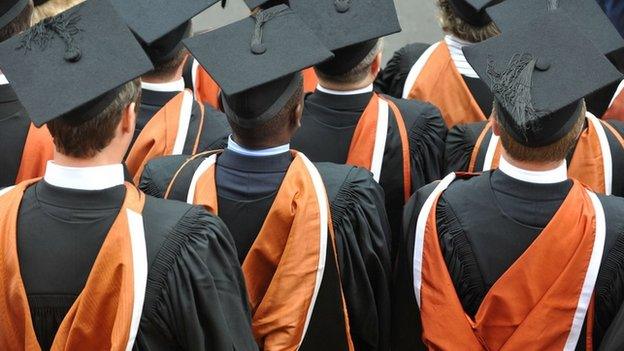
- Published24 June 2014
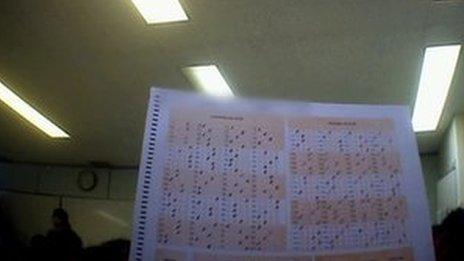
- Published10 February 2014
